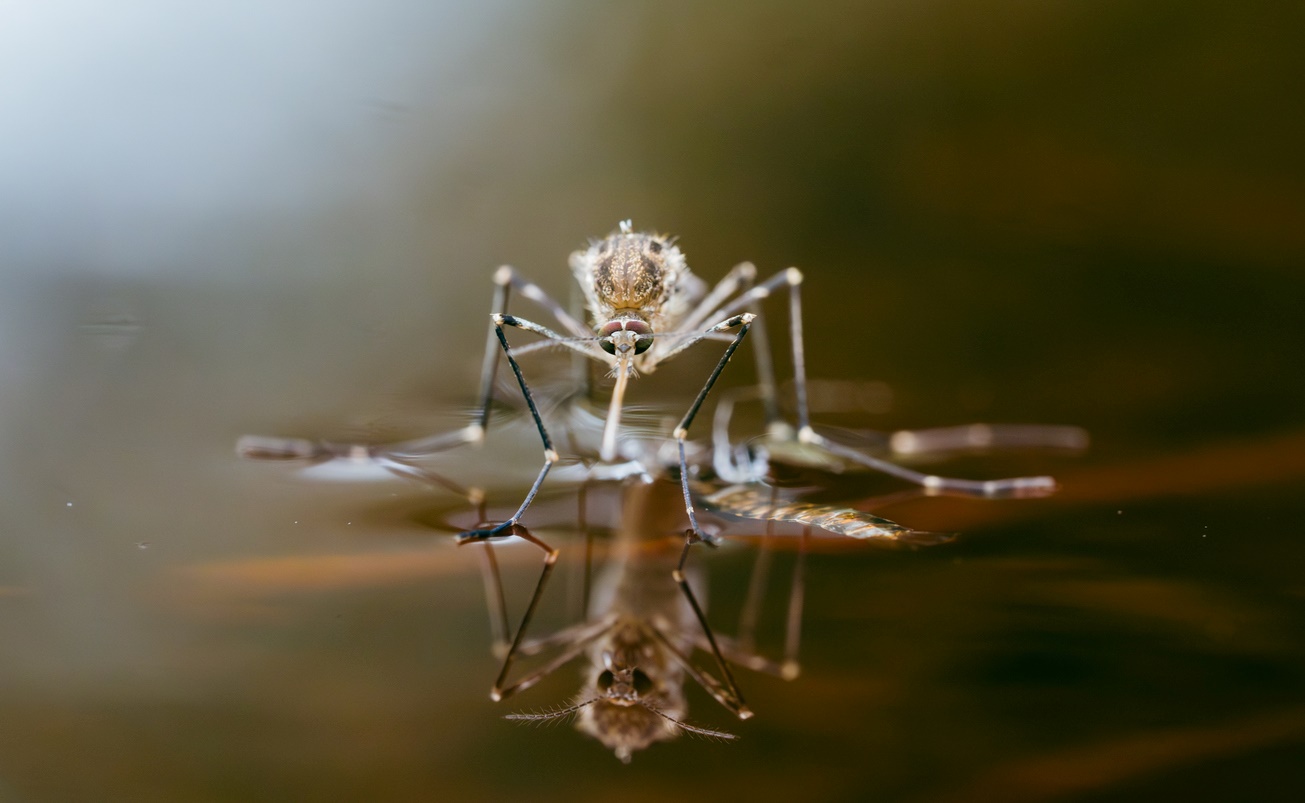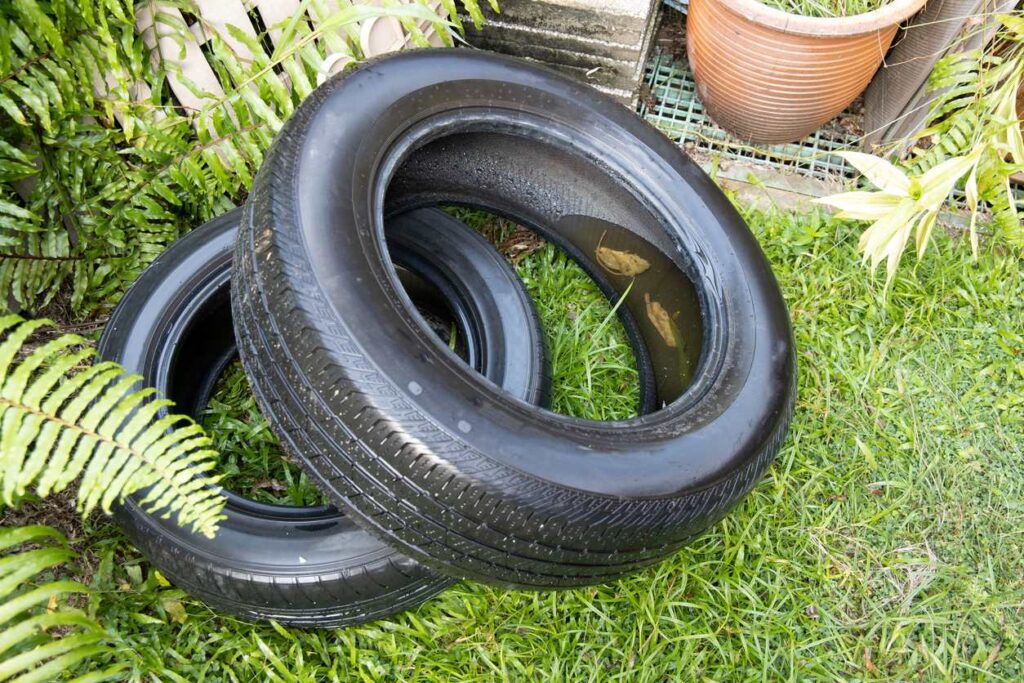What To Look for When Mosquitoes Return
What To Look for When Mosquitoes Return

One day, you’re enjoying a peaceful Sunday walk without a single mosquito in sight. The weather is perfect, the air is crisp, and there isn’t a single annoying buzz in your ear. But on your way to work the next morning, swarms of them suddenly seem to have appeared overnight.
The word “mosquito” comes from the Spanish term for “little fly,” and while they may be small, their impact is anything but. While a few stray mosquitoes may not be a threat, when they infest, they come in droves.
Today, we’ll cover how to identify mosquitoes, what they look for when choosing their next meal, and the best ways to keep them away—both indoors and out.
What Does a Mosquito Look Like?
Generally, mosquitoes have slender bodies, long legs, and narrow wings covered in tiny scales. Their most recognizable feature is their needlelike mouthpart, called a proboscis, although only female mosquitoes use it to feed on blood.
Most mosquitoes are between 3 and 6 millimeters long, with sizes that vary depending on the species and environmental conditions. Their wings are massive compared to the rest of their bodies, which is how they produce their low hum as they buzz by your head.
Similar to mosquitoes, no-see-ums—also known as biting midges—are much smaller but can leave bites just as irritating. Both pests tend to fly at a relaxed speed, especially if laden with a fresh meal, so be on the lookout for slow-flying buzzing pests around your home.
How Mosquitoes Find Hosts

Mosquitoes are very selective in how they locate their next meal. Relying on a combination of scent, body heat, and even vision to home in on a host, they are drawn to the carbon dioxide we exhale, which signals that a living, breathing creature is nearby.
Once they detect carbon dioxide, they use their antenna to search for other indicators of a good meal, including a warm body temperature and the presence of bacteria, and some mosquitoes even discriminate based on their favorite blood type.
Interestingly, these factors make pregnant women more likely to attract mosquito bites.
Indoor Mosquitoes
Mosquitoes are annoying enough when they swarm your backyard, but when they follow you indoors, you may feel like you have nowhere to escape.
Mosquitoes are most active outside, but they can follow you indoors if you don’t control their populations in your yard. Once inside, they’re an occasional nuisance—usually entering through open doors, windows, or pet entrances—but they won’t infest your home.
Avoiding Indoor Mosquito Problems
The best way to avoid indoor mosquito problems is to reduce outdoor breeding sites and keep entry points sealed. Here are some simple prevention tips to keep as many mosquitoes out of your home:
- Eliminate standing water around your home to reduce breeding grounds.
- Use mosquito-repellent plants near doorways and windows.
- Check and repair window screens and door gaps to keep mosquitoes outside where they belong.
By focusing on outdoor mosquito control, you’ll naturally minimize the chances of them sneaking indoors. If none of these options are suitable for you, purchasing a bug-zapping racket or a salt-shooting blaster can be a fun way to keep mosquitoes out of your home.
Outdoor Mosquito Repellent for Your Yard

The best mosquito repellent is often the kind that nature provides. Many plants have evolved chemical defenses to deter pests, and some of these natural compounds work just as well at keeping mosquitoes at bay.
Forms of Natural Mosquito Repellent
Lavender, citronella, and marigolds are all well known for repelling mosquitoes, but two of the most effective—and convenient—options for your garden are mint and basil. These herbs not only help keep mosquitoes away but also provide fresh ingredients for your kitchen throughout much of the year.
Mint’s strong menthol aroma overwhelms mosquitoes, which is why it is an excellent natural barrier when planted near your patio, doorways, and windows. Plus, it’s a hardy plant that grows rapidly, so you’ll always have plenty for both mosquito control and culinary use in teas, cocktails, and salads.
Basil is also a powerful mosquito deterrent, thanks to its natural insect-repelling oils. Unlike mint, basil thrives in warm weather and can be harvested throughout the summer. Beyond its pest-fighting abilities, basil is a staple ingredient in pesto and pasta and an excellent garnish for fresh salads.
Since both herbs grow quickly, you’ll likely have more than enough to enjoy in your meals while still maintaining a mosquito-free yard.
Do Mosquito Eaters Actually Eat Mosquitoes?
If you’ve ever seen a large, gangly insect hovering around your home, you may have mistaken it for a giant mosquito. These insects, commonly known as crane flies, “mosquito eaters,” or “skeeter eaters,” are often confused with mosquitoes due to their similar body shape. However, despite their nickname, crane flies do not actually eat mosquitoes.
Unlike mosquitoes, crane flies do not bite or feed on blood. Instead, their larvae consume decaying organic matter, which can help control mosquito populations by reducing breeding grounds. If you see a few crane flies around your home, they’re not a threat—in fact, they may be helping to keep mosquito numbers down.
Get Preventive Mosquito Control With Accel Pest and Termite Control

While natural repellents and indoor traps can help reduce mosquito activity, you want a professional touch to remove the infestation entirely.
The most effective way to control mosquitoes is with professional mosquito management from Accel Pest and Termite Control. We inspect, treat, and strategically apply our mosquito control sprays and traps in the areas they are presently and where they are likely to target in the future, stopping population growth before they can spread.
Before mosquitoes take over your summer, contact Accel Pest and Termite Control online or give us a call to schedule a consultation and protect your home from mosquitoes, inside and out.
